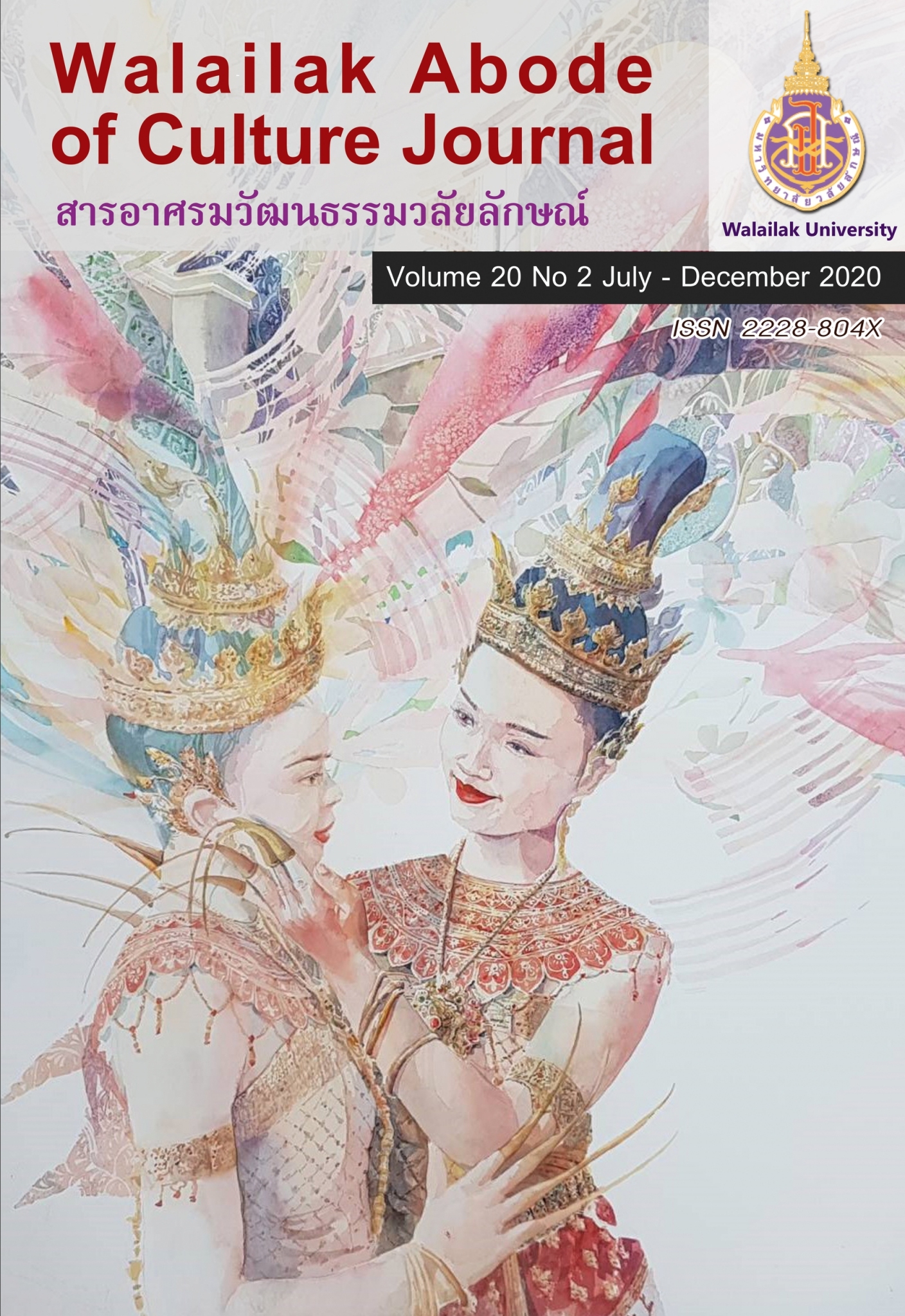Digital Entertainment Experience of Movie Streaming and The Adaptation to The Film Business in Thailand Digital Entertainment Experience of movie streaming and the adaptation to the film Business in Thailand
Main Article Content
Abstract
This research aimed to study the viewers behavior, viewing pattern and value factors that contribute to digital entertainment experience among streaming movie viewers and study trends and adaptations of the film business in Thailand that change in the context of movie streaming. The research was conducted with mixed research model (mixed - methods research) with 2 types of research: quantitative research. Using a survey method and data collection through questionnaires and qualitative research through focus group interviews and in-depth interviews.
The research findings show that movie streaming technology causing convergence media that is disruptive technology influence the viewers behavior and pattern of the viewers, resulted in the tendency to watch movies more frequently, individual viewing, with less concentration. They also gain more power audience. According to quantitative data collection, the value factors that affect the digital entertainment experience among streaming movie viewers are: 1) Freedom 2) Flexibility 3) Continuity 4) Diversity 5) Usability 6) Instant Gratification 7) Enjoyment 8) Personalization and 9) Social Influence.
As for trends and adaptations of the film business in Thailand that change in the context of movie streaming., the changes include: 1) Business Film Convergence in production, distribution and platforms causing new supply-chain in the film business, 2) Accelerated Windowing 3) New trends for movies on streaming platforms including fast-paced storytelling, expanding boundaries, specific target groups, creating local stories that are globalize, and serialization of movie premises.
Article Details
© 2018 by Asian Journal of Arts and Culture, Walailak University. All rights reserved.
References
Basilico, J. (2019). Recent Trends in Personalization: A Netflix Perspective. Retrieved from https://www.slideshare.net/justinbasilico/recent-trends-in-personalization-a-netflix-perspective.
Day, G.S., & Schoemaker, P.J.H. (2000). Wharton on man aging emerging technologies. New York, USA: Wiley.
Field, S. (1979). Screenplay: The foundations of screenwriting. New York, USA: Delta.
Intaratat, K. (2014). Philosophy in Communication Arts and Communication theory. Nonthaburi, Thailand: Sukhothai Thammathirat.
Jenkins, H. (2006). Convergence culture: Where old and new media collide. New York, USA: NYU press.
Rungnontaratcharinsarn, A. (2018). Integrated marketing communication to be closer to consumers in a seamless world. Bangkok, Thailand: Expernet.
Singlumpong, O. (2013). A Discourse on Political Communication from the Thai Historical
Film Entitled the Legend of King Naresuan. (Doctoral dissertation, Thammasart University, Bangkok, Thailand).
Supasetsiri, P. (2012). Comedy Film: A Case Study of Thai Comedy Film during 2005-2009. Bangkok, Thailand: College of Social Innovation Communication, Srinakharinwirot University.
Venkatesh, V., Morris, M. G., Davis, G. B., & Davis, F. D. (2003). User acceptance of information technology: Toward a unified view. MIS quarterly, (27)3, 425-478.
Wiwatsinudom, R. (2015). Film Entertainment. Bangkok, Thailand: Se-Education Public Company Limited.
Zhu, K. (2001). Internet-based distribution of digital videos: the economic impacts of digitization on the motion picture industry. Electronic Markets, 11(4), 273-280.


